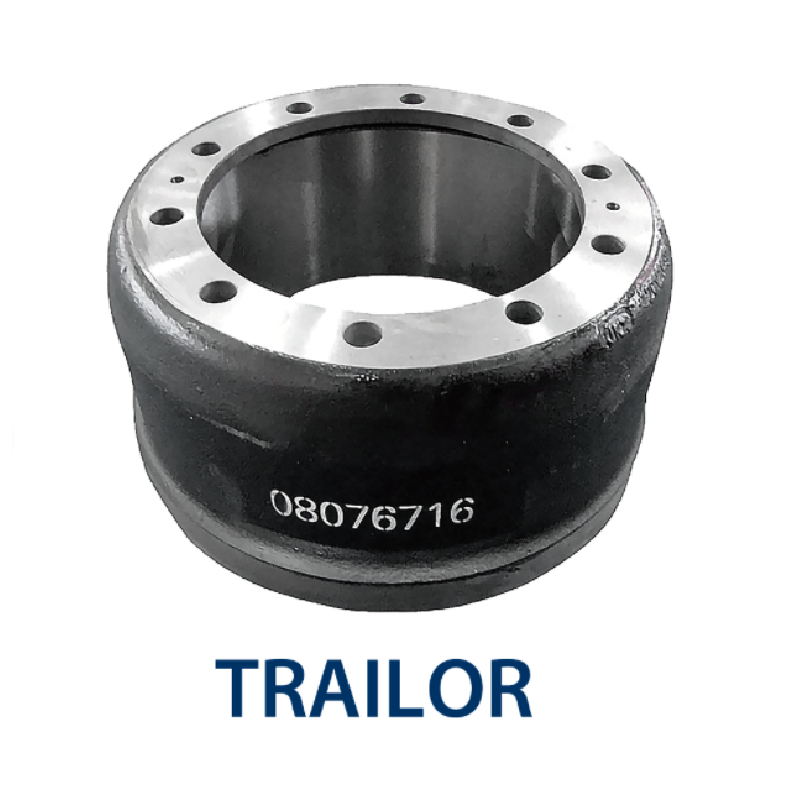Ara . 12, 2024 22:40 Back to list
how to get rid of rust on brake drums
How to Get Rid of Rust on Brake Drums
Rust can be a significant issue for brake drums, especially in vehicles that are exposed to moisture, road salts, and other corrosive elements. Rust not only affects the aesthetic appeal of your brake components but can also compromise their functionality and safety. Fortunately, there are effective ways to clean and prevent rust on brake drums. Here’s a detailed guide on how to tackle this problem.
Understanding the Problem
Rust forms when iron and oxygen react in the presence of moisture. Brake drums, made primarily of iron, are susceptible to this reaction, especially if they are not protected by paint or are exposed to water regularly. If you notice rust on your brake drums, it’s essential to address it promptly. Ignoring the problem could lead to brake failure, as rust can hinder the drum's ability to operate efficiently.
Tools and Materials Needed
Before you begin the rust removal process, gather the necessary tools and materials
- Safety goggles and gloves - Wire brush or metal scrubbing pad - Sandpaper (preferably 80 to 120 grit) - Rust remover (like phosphoric acid or a commercial rust remover) - Clean rags - Brake cleaner - High-temperature paint (optional) - Paintbrush or spray can (for applying paint)
Step-by-Step Process
1. Safety First Before starting any work on your brakes, ensure the vehicle is parked on a flat surface with the parking brake engaged. Wear safety goggles and gloves to protect yourself from debris and chemicals.
2. Remove the Wheel Use a lug wrench to loosen the lug nuts on the wheel covering the brake drum. Once loose, lift the vehicle with a jack, and securely place jack stands for safety before completely removing the wheel.
3. Examine the Brake Drum Inspect the brake drum for rust and other damages. If the rust is superficial, you can proceed with cleaning. However, if the drum is severely rusted or pitted, consider replacing it.
how to get rid of rust on brake drums

4. Scrub Away the Rust Use a wire brush or a metal scrubbing pad to remove the loose rust from the surface of the drum. Be thorough, but take care not to scratch the drum excessively. For stubborn rust, use sandpaper to sand it down gently until it’s smooth.
5. Apply Rust Remover Once you've scrubbed away the rust, apply a rust remover according to the manufacturer’s instructions. Allow it to sit for the recommended time to effectively break down any remaining rust.
6. Clean the Surface After the rust remover has worked its magic, wipe the drum clean with a rag. Follow this by using brake cleaner to ensure that all contaminants are removed. Allow it to dry completely.
7. Optional Paint the Drum If desired, apply high-temperature paint to the drum. This can help prevent rust from forming again in the future and give your brake components a polished look. Make sure to follow all drying and curing times specified on the paint can.
8. Reassemble the Wheel Once everything has dried and cured, reattach the wheel and tighten the lug nuts securely. Lower the vehicle and give the nuts one final check for tightness.
Preventive Measures
To help prevent rust from reoccurring, consider these tips
- Regularly inspect your brake components and clean them as needed. - Park your vehicle in a garage or under a cover to reduce exposure to moisture. - If you live in an area with heavy road salt usage, clean your brake drums and other undercarriage components frequently.
Conclusion
Removing rust from brake drums is essential for maintaining the safety and efficiency of your vehicle’s braking system. By following these steps, you’ll not only enhance the lifespan of your brake components but also ensure a smoother, safer driving experience. Always prioritize safety and, when in doubt, seek professional help to address any serious rust damage.
-
FUWA: Premium Quality, Reliable Performance & Innovative Solutions
NewsAug.25,2025
-
Liza Brake Drum: Superior Quality & Performance for Safe Driving
NewsAug.24,2025
-
Iveco Brake Drum | Premium OE Quality for Daily & Eurocargo
NewsAug.22,2025
-
Your Brake Drum Man: Quality & Performance Parts
NewsAug.21,2025
-
Explore Japan: Ultimate Travel Guide & Authentic Experiences
NewsAug.19,2025
-
Your Brake Drum Man: Premium & Reliable Brake Drums for Sale
NewsAug.18,2025
